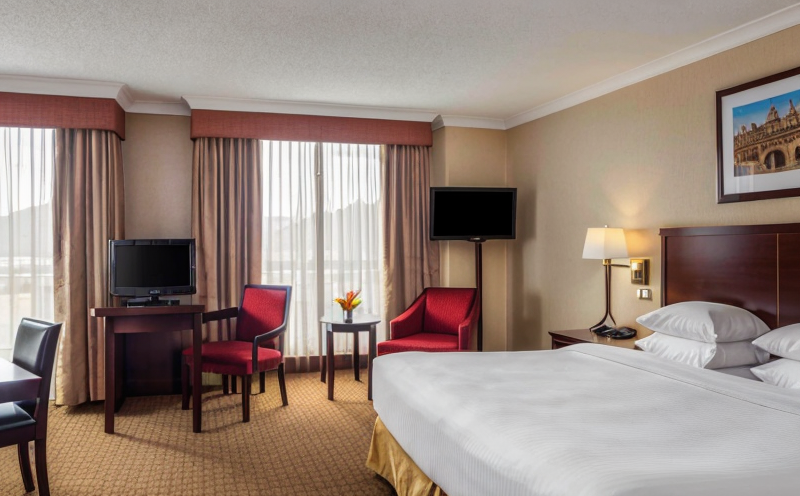Hotel and Accommodation Certification: Ensuring Quality and Excellence
The hospitality industry is a multi-billion-dollar market that thrives on the quality of service provided to guests. Hotels and accommodations play a crucial role in making or breaking the experience for travelers. However, with so many options available, it can be challenging for consumers to make informed decisions about where to stay. This is where hotel and accommodation certification comes into play.
Hotel and accommodation certification is a process that evaluates and recognizes establishments that meet specific standards of quality, safety, and sustainability. These certifications are not only beneficial for travelers but also help hotels and accommodations improve their performance and reputation. In this article, we will delve into the world of hotel and accommodation certification, its benefits, types, and requirements.
Benefits of Hotel and Accommodation Certification
There are several benefits associated with hotel and accommodation certification, including:
Increased customer confidence: Certified establishments demonstrate a commitment to quality and excellence, giving guests peace of mind when booking.
Improved operational efficiency: The certification process encourages hotels and accommodations to implement best practices, streamline processes, and reduce waste.
Enhanced brand reputation: Certification can lead to increased visibility and credibility in the market, attracting more customers and partners.
Access to exclusive networks: Certified establishments may be eligible for membership in exclusive networks, such as international hotel associations or sustainability-focused groups.
Increased revenue potential: Certification can lead to higher room rates and occupancy levels, resulting in increased revenue.
Types of Hotel and Accommodation Certifications
There are various types of certifications available to hotels and accommodations, each focusing on specific areas such as:
Sustainability: Certifications like ISO 14001 (Environmental Management System) or the EarthCheck Certification Program recognize establishments that adopt environmentally friendly practices.
Quality: Certifications like the International Hotel Associations (IHA) Quality Standard or the American Hotel and Lodging Associations (AHLA) Quality Standards recognize establishments that meet high standards of quality and service.
Safety: Certifications like OHSAS 18001 (Occupational Health and Safety Management System) or the IHAs Safety and Security Certification Program ensure that hotels and accommodations prioritize guest safety.
Detailed Explanation of Sustainability Certifications
Here are some detailed explanations of sustainability certifications:
ISO 14001: Environmental Management System: This certification requires establishments to implement a systematic approach to environmental management, including:
Identifying and assessing potential environmental impacts
Establishing policies and procedures for minimizing waste and pollution
Monitoring and reviewing performance regularly
Continuously improving environmental management practices
EarthCheck Certification Program: This program assesses an establishments sustainability performance across 10 key areas, including:
Energy consumption and greenhouse gas emissions
Water conservation and efficiency
Waste reduction and recycling
Supply chain management and procurement
Employee training and engagement
Detailed Explanation of Quality Certifications
Here are some detailed explanations of quality certifications:
IHAs Quality Standard: This certification requires establishments to meet specific standards in areas such as:
Guest satisfaction and loyalty
Employee training and development
Service quality and consistency
Room cleanliness and maintenance
Food safety and hygiene
AHLAs Quality Standards: These standards focus on ensuring that hotels and accommodations provide high-quality service, including:
Meeting guest expectations and needs
Providing excellent customer service
Maintaining a clean and safe environment
Ensuring food safety and quality
QA Section
Q: What is the process of obtaining hotel and accommodation certification?
A: The process typically involves an initial application, followed by a self-assessment or audit to determine eligibility for certification. If successful, establishments are required to implement improvements and undergo regular audits to maintain certification.
Q: Which certifications are most relevant to hotels and accommodations?
A: Sustainability certifications like ISO 14001 and EarthCheck, as well as quality certifications like IHAs Quality Standard and AHLAs Quality Standards, are highly relevant and widely recognized in the industry.
Q: How long does hotel and accommodation certification typically last?
A: Certification periods vary depending on the type of certification. Typically, certifications last 1-3 years before renewal is required.
Q: Are there any costs associated with obtaining hotel and accommodation certification?
A: Yes, establishments must pay fees for certification, which can range from a few hundred to several thousand dollars, depending on the type of certification and scope of work.
Q: Can non-hotel businesses obtain hotel and accommodation certification?
A: While some certifications are specific to hotels and accommodations, others may be applicable to other types of establishments, such as vacation rentals or bed-and-breakfasts. Its essential to research and choose a certification that aligns with the business type.
Q: How does hotel and accommodation certification impact employee training and development?
A: Certification requires establishments to demonstrate a commitment to employee training and development, which can lead to improved job satisfaction, productivity, and guest service quality.
Q: Can hotels and accommodations combine multiple certifications?
A: Yes, many establishments choose to pursue multiple certifications that align with their business goals and values. This demonstrates a stronger commitment to excellence and sustainability.
Conclusion
Hotel and accommodation certification is an essential step towards ensuring quality and excellence in the hospitality industry. By understanding the benefits, types, and requirements of different certifications, establishments can make informed decisions about which programs to pursue. Whether focused on sustainability, quality, or safety, hotel and accommodation certification can lead to increased customer confidence, operational efficiency, and revenue potential.

































